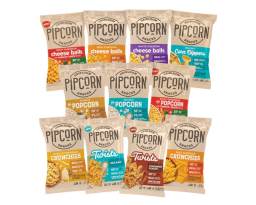
Reduce, reuse, and recycle.
Those are the three little words that we all have implanted in our brains when thinking about saving the planet with sustainability practices.
However, the main buzzword we are going to talk about here is reuse.
Food Waste
Unfortunately, food waste is a huge problem around the world, especially in the United States. According to the Conservation Law Foundation, “the U.S. wastes an estimated 125 to 160 billion pounds of food each year” on average. This wasted food is all dumped into a landfill with other non-organic items that cause the green waste to break down and emit methane. The CLF notes that landfills are filled with “so much organic waste that landfills are now the third-largest source of climate-damaging methane emissions in the U.S.”

So, not only are we wasting precious resources of food and water when we waste, but we are also creating loads of toxic chemicals that are breaking down our ecosystems and the ozone layer.
Upcycling Food
One of the newest and fastest-growing trends in sustainability is that of upcycling food. The whole idea behind upcycling food is to avoid food waste ending up in landfills and instead repurpose the waste to create something fresh and new.
For example, instead of throwing away your cilantro stems, use them to boost the flavors in your soups or salsas. Or, if you just made fresh pressed juice, keep the pulp to add some flavor, texture, and moisture to make hearty and healthy veggie burgers.

According to The Upcycled Food Organization, “upcycled food is about reducing food waste, by creating high quality, nutritious food products out of the nutrients that slip through the cracks of our food system.”
This means that upcycled foods are for human consumption! Food with just a bit of a makeover is pushing our environment and sustainability efforts that our planet so desperately needs. If this sounds like a daunting task to do on your own, there is no need to panic. There are ample products and companies, with the numbers growing rapidly, that offer upcycled food for people to purchase.
- Spudsy: This company uses imperfect sweet potatoes that are seemingly not “pretty” enough to make it on the grocery store shelves and turns them into delicious snacks and fries.

- Greenhouse: Greenhouse is a company that focuses on fresh-pressed juice. They also use leftover pulps to create products like ginger beer.

- Pipcorn Heirloom Snacks: This snack company uses its leftover heirloom corn to create delicious and nutritious snack twists.

- Chix Soup Co: Delicious chicken soup is given a sustainable upgrade by Chix Soup Co, which uses every single part of the chicken to create the most flavorful and environmentally friendly broths and soups.

- Outcast Foods: Outcast foods work their plant-based technological magic on forgotten and unwanted produce to create shelf-stable, nutritious protein powders.

Start checking out your food labels and thinking about your kitchen connoisseurs, so that you can give a little bit more thought and love to your body and the planet.
Gardening for Your Mind, Body and The Planet
Gardening is a beautiful way to spread some love to your mind, your body, and the planet. When we spend time cultivating the earth, we cultivate an attitude of care and respect for nature and all that it takes to put food on the table and into our bodies.
Gardening can be a kind of meditation and reiteration. “I do a bit, then nature does her bit, then I respond to whatever nature needs.” When you take your moments of mindfulness and care to nurture your garden, you can thank the earth for all that it does to bring you and your loved ones’ life.

Planting and harvesting your own crops can lead to healthier choices, less food waste, and overall more awareness and care for the bounty that the earth is. Garden for your mind, body, and the planet with Gardenuity!